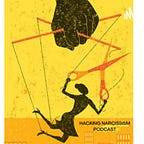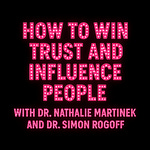Discernment is often described as intuition or insight, yet it is the human capacity to perceive what is true and real in a situation, even when that truth threatens one’s self-image or comfort. In this Wellthy Living podcast episode, we explore discernment from multiple angles and examine how we learn to recognise it through bodily sensations, thought patterns, and interpersonal responses.
Discernment strengthens as we become better at recognising patterns. It involves noticing the cues that signal when something is aligned and when something is off. This includes the bodily sensations that activate before we have language, the thoughts that circle around inconsistencies, and the shifts in behaviour that reveal how an interaction is unfolding. It’s shaped through ongoing attention to the sensations, signals, and shifts that take place within us and in our interactions.
A theme that consistently arises in my work with people navigating narcissistic behaviour, scapegoating, and other workplace abuses is betrayal. Like all painful events, betrayal becomes a doorway to developing character strengths while enduring the pain of shedding a false or now obsolete identity and the relational patterns built around it. It ruptures a person’s sense of self, the trust they held in others, and the fantasy of how they believed the world worked. While betrayal hurts like hell, it’s also one of the few ways to cultivate discernment because the pain of never wanting to experience it again ignites the desire to prevent it. Betrayal can be motivating when someone wants to learn from the experience and derive its wisdom, rather than only focusing on the pain of the wound.
In this conversation, we discuss:
• What discernment actually is
• Why we struggle to trust our own discernment
• How culture, social media, and information overload cloud our perception
• My Liberation Cycle: disrupt, extract, and release, a process that turns awareness into meaningful change
• How discernment protects energy, strengthens boundaries, and still sustains an open heart
• The cost of choosing truth over belonging, and how discernment can deepen connection rather than sever it
• Practical ways to begin practising discernment in daily life
Notable quotes from our conversation:
“Discernment is the ability to perceive what’s true, even when that truth is inconvenient.”
“It’s the capacity to see beyond your conditioning and the pressure to conform or deny reality.”
“Discernment develops because you’ve been betrayed or duped enough times that you decide it’s not going to happen again.”
“In any interaction we’re playing status games, and someone will try to dominate the narrative.”
“We often defer to someone else’s authority and ignore our own.”
“Just because someone believes strongly in what they’re saying doesn’t mean it’s true or that they can actually do it.”
“Feeling special should be treated as a cue for suspicion because it makes you vulnerable to exploitation.”
“People who are elevated too quickly often become the scapegoat. There’s nowhere to go but down.”
“Trust and discernment grow together. You can’t develop discernment if you don’t trust what your perception is telling you.”
“You can have connection without belonging anywhere, and still feel steady.”
“When a workplace tells you to ‘speak your truth,’ it usually means the opposite. I hold back and observe first.”
“If you rely on external validation to feel good about yourself, it becomes an addiction and erodes your discernment.”
If you enjoyed this conversation, I highly recommend subscribing to Lisa’s podcast HERE.
She was also contributed a thought provoking piece on what teenage boys are trying to tell us.
Hack narcissism and support my work
I believe that a common threat to our individual and collective thriving is an addiction to power and control. This addiction fuels and is fuelled by greed - the desire to accumulate and control resources in social, information (and attention), economic, ecological, geographical and political systems.
While activists focus on fighting macro issues, I believe that activism also needs to focus on the micro issues - the narcissistic traits that pollute relationships between you and I, and between each other, without contributing to existing injustice. It’s not as exciting as fighting the Big Baddies yet hacking, resisting, overriding and deprogramming our tendencies to control others that also manifest as our macro issues is my full-time job.
I’m dedicated to helping people understand all the ways narcissistic traits infiltrate and taint our interpersonal, professional, organisational and political relationships, and provide strategies for narcissism hackers to fight back and find peace.
Here’s how you can help.
Order my books: The Little Book of Assertiveness: Speak up with confidence and the Scapegoating Playbook at Work
Support my work:
through a Substack subscription
by sharing my work with your loved ones and networks
by citing my work in your presentations and posts
by inviting me to speak, deliver training or consult for your organisation













